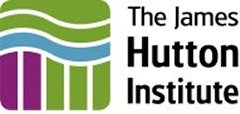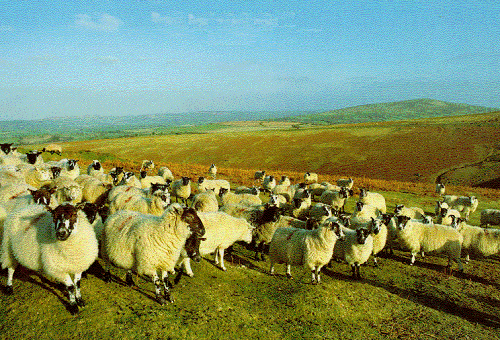 The James Hutton Institute
The James Hutton Institute
This page is no longer updated. The Macaulay Land Use Research Institute joined forces with SCRI on 1 April 2011 to create The James Hutton Institute.
Foundation of the European Wool Group
 On 22 May 1997 representatives of major professional organisations
involved in the producing and processing of European wool presented the
newly founded European Wool Group (EWG) in Brussels. This is the
first time that such a Europe-wide inter-professional organisation has
been established, covering all parts of the wool production chain from
the sheep farmer right through to wool processing and marketing structures.
On 22 May 1997 representatives of major professional organisations
involved in the producing and processing of European wool presented the
newly founded European Wool Group (EWG) in Brussels. This is the
first time that such a Europe-wide inter-professional organisation has
been established, covering all parts of the wool production chain from
the sheep farmer right through to wool processing and marketing structures.
Wool is one of Europe's oldest resources and was once the most important
source of wealth of certain countries, However, the extremely low prices
paid for wool and the almost total lack of efficient collection, grading
and marketing structures in most EU member states have resulted in this
natural resource being severely neglected. Prices often barely cover the
cost of shearing and there is no incitement to sheep farmers to increase
quality.
The development of quality wool breeds has required centuries of expertise
and know-how, much of which is now in danger of being lost. Wool is not
considered to be of any commercial value and large quantities are even
thrown away. Meanwhile, the vast majority of wool processed by European
textile factories is imported from the southern hemisphere.
Wool is not considered to be an agricultural product by the European
Union and there has never existed a specific programme of support measures
for the sector. Sheep breeding plays an important socioeconomic role, especially
in mountain and marginal areas facing decline and rural exodus. The upgrading
of the different kinds of European wool would contribute towards the sustainable
development of the rural zones concerned, firstly through the increase
in farmers' income and secondly through the creation of jobs in local collection
and processing structures. In addition, there is a growing demand by consumers
for quality products with a guaranteed origin.
The EWG's three main aims are to improve the value of European produced
wool, represent members' needs to the EU and other institutions and seek
financial aid to improve the sector.
In March 1996 the European Parliament adopted the report prepared by
Liam Hyland MEP, in collaboration with the EWG, on the need for support
measures for producers and processors of European wool. The Parliament
then adopted Mr. Hyland's proposed amendment to the 1997 budget introducing
a new line for a research programme to increase the use of wool within
the European Union. The EWG has since made an application to Commissioner
Fischler and DGVI for funding for such a research programme.
The following organisations are founder members of the EWG:
Agenzia Lane d'ltalia (Italy)
Asociacion Nacional de Criadores de Ganado Merino (Spain)
British Wool Marketing Board (United Kingdom)
Chambre Syndicale des Laines de France
European Association for Study, Liaison, Innovation and Research into Textiles (ATELIER)
Federaçao das Associações Portuguesas de Ovinicultores (Portugal)
Gordet Oy (Finland)
Kooperative Norsk Kjott (Norway)
Nederlandse Wolfederatie (Netherlands)
Schweizerische Inlandwollzentrale (Switzerland)
Sveriges Ull & Skinnrad (Sweden)
Among other interested organisations are:
ARGE Schafzuchtverband Österreich
Greek Ministry of Agriculture
Irish Farmers Association
Vereinigung Deutscher Landesschafzuchtverbände
At its meeting on 22-23 May in Brussels the EWG elected its President
and three Vice- presidents:
President.. Carlo Piacenza, President, Agenzia Lane d'ltalia
The three Vice-Presidents are representatives of the British Wool Marketing Board, the Spanish
Association of Merino Sheep Breeders and the Swedish Wool and Sheepskin
Council.
The secretariat of the European Wool Group will be carried out jointly
by
Agenzia Lane d'Italia, c/o Dr. Leo Gallico, CNR Istituto Rivetti, Corso
Pella 16, I-13051 Biella (Tel. +39.15.849 30 43; Fax. +39.15.835 35 23)
ATELIER, Le Pigeonnier, F-04300 Limans
(Tel. +33.492 73 18 15; Fax. +33.492 73 18 18)